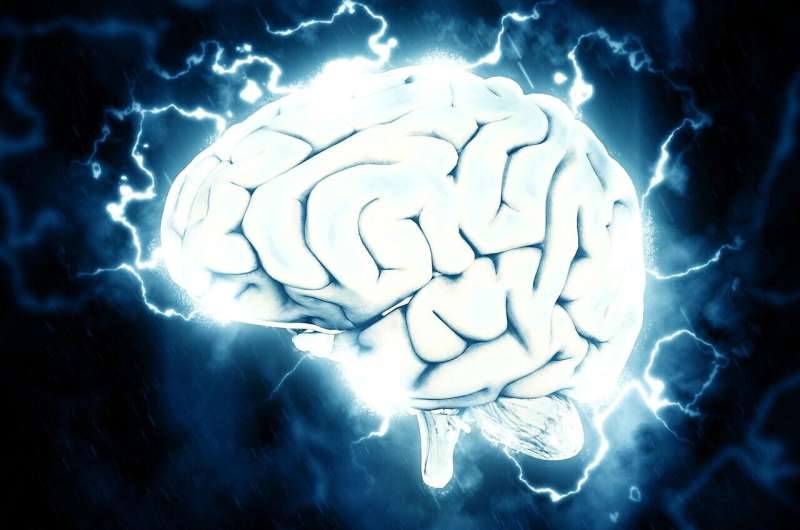Researchers discover neuroprotective treatment for chronic traumatic brain injury

Traumatic brain injury (TBI) is a leading cause of cognitive impairment that affects millions of people worldwide. Despite growing awareness about the debilitating and lifelong progressive consequences of TBI, there are currently no treatments that slow the deteriorative process. TBI survivors are currently treated with extensive physical and cognitive rehabilitation, accompanied by medications that may mitigate symptoms yet do not halt or slow neurodegeneration.
Now, researchers have found for the first time that this process can be pharmacologically reversed in an animal model of this chronic health condition, offering an important proof of principle in the field and a potential path to new therapy. The findings from Harrington Discovery Institute at University Hospitals (UH), Case Western Reserve University (CWRU) School of Medicine, and Louis Stokes Cleveland VA Medical Center were recently published in the Proceedings of the National Academy of Sciences (PNAS).
"TBI can lead to lifelong detrimental effects on multiple aspects of health," explains Andrew A. Pieper, MD, Ph.D., senior author on the study and Director of the Harrington Discovery Institute at UH Neurotherapeutics Center, Morley-Mather Chair in Neuropsychiatry, Professor of Psychiatry at CWRU, and Psychiatrist at the Louis Stokes Cleveland VA Medical Center Geriatrics Research Education and Clinical Center (GRECC). "Adverse long-term outcomes of TBI commonly include sensorimotor impairment, cognitive dysfunction, or emotional dysregulation, such as depression and anxiety, including worsened post-traumatic stress disorder. In addition, TBI significantly increases the risk of later developing aging-related forms of dementia, such as Alzheimer's and Parkinson's diseases."
Dr. Pieper and his team set out to test whether it was possible to reverse the lifelong chronic neurodegeneration and associated cognitive deficits after TBI, which had never been demonstrated before. They utilized a mouse model that mimicked concussive impact in middle-aged people suffering a TBI decades prior, and administered an energy-elevating neuroprotective compound, known as P7C3-A20, that they had previously shown to have therapeutic value in acute TBI. The research team waited for one year after injury and then administered the compound daily to mice for one month.
Strikingly, this brief treatment with P7C3-A20 restored normal cognitive function. They continued to observe the mice for an additional four months, during which time they did not administer any more compound. Remarkably, at the end of this period the mice still showed normal cognitive function. Thus, after just one month of treatment, cognitive function remained improved four months later.
"When we examined the brains under the microscope, we saw that chronic neurodegeneration after TBI had completely stopped in the mice that had been briefly-treated with P7C3-A20," said Edwin Vázquez-Rosa, Ph.D., co-first author on the study. "Then, under electron microscopy we discovered that P7C3-A20 had also facilitated repair of the endothelial cells lining the blood vessels of the brain."
"This is the first time we've seen that P7C3-A20 can protect endothelial cells at the interface of the cardiovascular system and the brain, known as the neurovascular unit (NVU)," explains Min-Kyoo Shin, Ph.D., co-first author on the study. Deterioration of the NVU occurs in almost all types of brain injury and disease, and is a well-known early and chronic feature of Alzheimer's disease. The team also showed that P7C3-A20 directly protects human brain microvascular endothelial cells cultured in the laboratory as well.
"Except for aging and genetics, TBI is the greatest risk factor for developing Alzheimer's disease," explains Matasha Dhar, Ph.D., co-first author on the study. "We speculate that preserving the blood-brain barrier at the NVU might be a way to protect TBI patients from this increased risk."
Robert A. Bonomo, MD, Associate Chief of Staff and Director of the Cleveland GRECC asserts, "These seminal findings have tremendous long-term impact on our veteran population that suffers from TBI."
There are currently no medicines available to patients that directly protect the blood brain barrier. A medicine with this property, such as might be derived from the P7C3 series of compounds, would have broad applicability to numerous conditions of the brain, including TBI and Alzheimer's disease.
More information: Edwin Vázquez-Rosa el al., "P7C3-A20 protects the blood–brain barrier after systemic inflammation or traumatic brain injury (TBI), and treatment one year after TBI arrests chronic neurodegeneration and restores cognition," PNAS (2020). www.pnas.org/cgi/doi/10.1073/pnas.2010430117



















